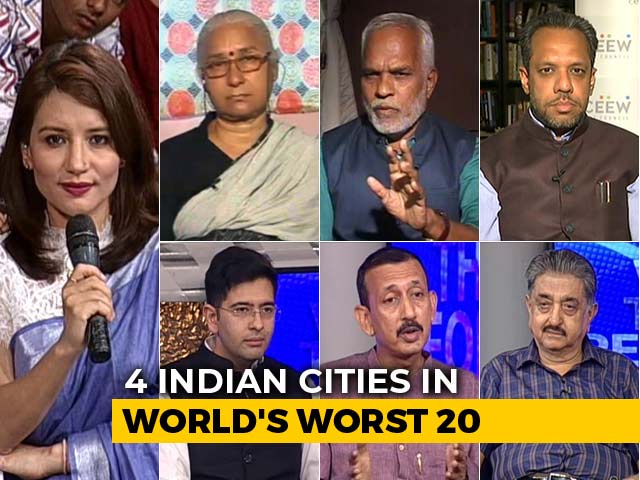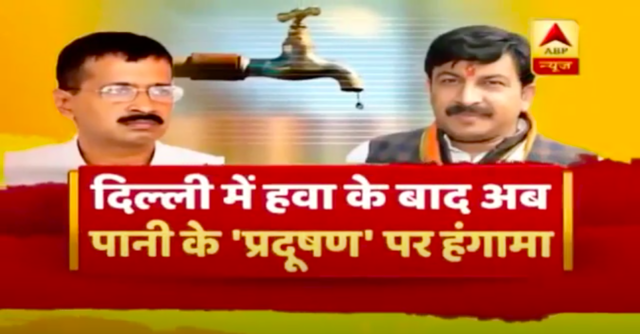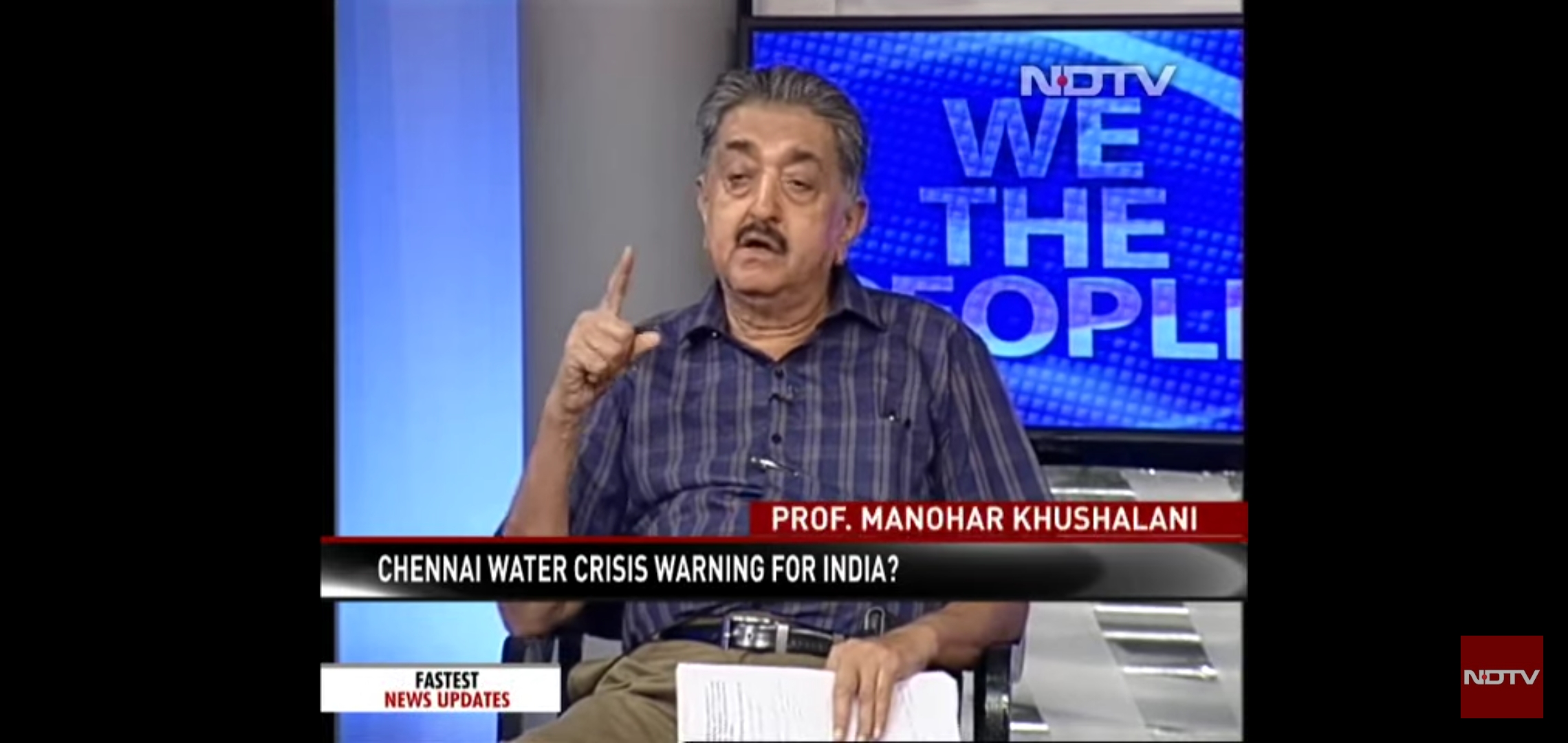India’s Water Emergency

BTP Students: Sejal Kumar, Aysha Fazilath, Vyshakh Dharan, Rahul Patwardhan
Manohar Khushalani was one of the panelists who appeared live on NDTV for a panel discussion on the water crisis faced in India. This video gives an insight into the problems faced by Indians when it comes to water as well as some expert opinions on this matter. Some of the other panelists are Raghav Chadha, VK Madhavan, Medha Patkar, Dr. Vaman Acharya, and Arunabha Ghosh.
India is facing a major water crisis. People are facing drought-like situations and running out of tap water in major cities like Bengaluru, Chennai and even in the capital, Delhi.
How severe is the water crisis in India?
- The 2030 Water Resources Group estimates that if we continue to consume water as per the current rate, India will have only half the water it needs by 2030, which means we’re only 10 years away from reaching this point.
- Water being used for agricultural purposes is being over-exploited. According to a recent study, nearly 80 percent of India’s freshwater is being used in agriculture. This number is very high compared to the likes of China and South Africa who use 64 percent and 62 percent respectively.
- India is depleting groundwater levels at an alarming rate. Groundwater accounts for 90 percent of the drinking water requirements in rural India and nearly 50 percent in urban areas.
- 60 percent of India’s districts have been declared critical on groundwater. This means that they either have poor quality of water or a very limited supply.
- As the scarcity of water is increasing day by day, people are resolving to water tankers which are also getting more expensive everyday. This is affecting the lower class drastically.
- According to a report, only 15 percent of India’s population receives 85 percent of India’s water. The inequality and discrimination also play a huge role in this crisis.
Raghav Chadha started the discussion by giving facts such as, the water availability has increased in Delhi in the last 4 years from 50 percent of the population receiving usable water to 80 percent. He also said the government is planning to rejuvenate lakes and also create new lakes as resources for freshwater. He also mentioned that the condition of south delhi districts, which earlier faced the problem of clean water and also improper sewage treatment, has now been fixed and will be provided with usable fresh water in the upcoming months.
Prof. Manohar Khushalani mentioned the fact that India as a country consumes more groundwater than any other country. He also stated that water should now be treated as a subject for the central government instead of being treated as a state subject. The states do not have enough coordination and are busy in handling the inter-state water disputes while the residents are still suffering. He also mentioned the fact that there needs to be more research put into methods for getting water from rivers and other sources.
VK Madhavan then gave some key perspectives such as, that the water crisis is caused not only due to excessive use of water but also improper distribution and conservation of water. He argued that the source of tankers that provide water to communities is uncertain, and there are still major areas that don’t have assured access. At a later stage of the discussion he also mentioned that cities are largely dependent on groundwater but do nothing when it comes to implementation methods like drip irrigation to conserve water. India receives a huge amount of rainfall which doesn’t necessarily seep into the ground and thus should be stored and filtered in an efficient manner.
Medha Patkar emphasised on the fact that the current structures and working of dams and related buildings are destroying the rivers. She also highlighted that the government should be focusing more on mini and micro water shedding instead of macro water shedding. She also said that the government’s main strategy should revolve around controlling the access to water on a per house basis and that for major changes the community itself should play a big role.
While water scarcity in India as an issue has not been discussed as topmost important matter, it is high time the people should focus on this subject, or else it’ll be too late to realise and it will affect India and its people way more than it is doing today.
Chennai, the fourth largest city in India, is the worst hit city when it comes to water crisis. Chennai city officials declared that the day when almost no water is left, had been reached, as all the four main reservoirs supplying water to the city had run dry. Two years of deficient monsoon rainfall, with a rainfall deficit of 55 percent, particularly in late 2017 and throughout much of 2018 had led to this crisis. This has impacted millions of people who are left with inconsistent access to water. This is said to be the case of current developed states like Karnataka and Maharashtra in the future. Karnataka has very small amounts of resources left and soon will be piling their hopes on Maharashtra to receive water. On the other hand, Maharashtra because of its size and location, is under immense pressure to provide not only to its residents but also neighbouring states. The rainfall in these 2 states has also started declining in the past few years which only has caused more problems.
Some of the other valuable points that are mentioned by the panellists are; controlling the use of water in the agriculture industry. Sugarcane, which is a crop that depends on water heavily, is grown in parts of the country that have a scarcity of supply. This reduces the availability of water for the people for their personal use; recycling and recharging should be the topmost priority of any water management organisation, i.e. filtering out the water received by rain and distributing that water to the households that don’t have access to groundwater; the yearly monsoon pattern shows that the rain is declining in most parts of India and this also should be a major concern; even though the government is planning on making new residential buildings for development, they are not checked about proper water consumption levels and are sometimes specified with uncertain sources of water so as to receive license to build those structures.

